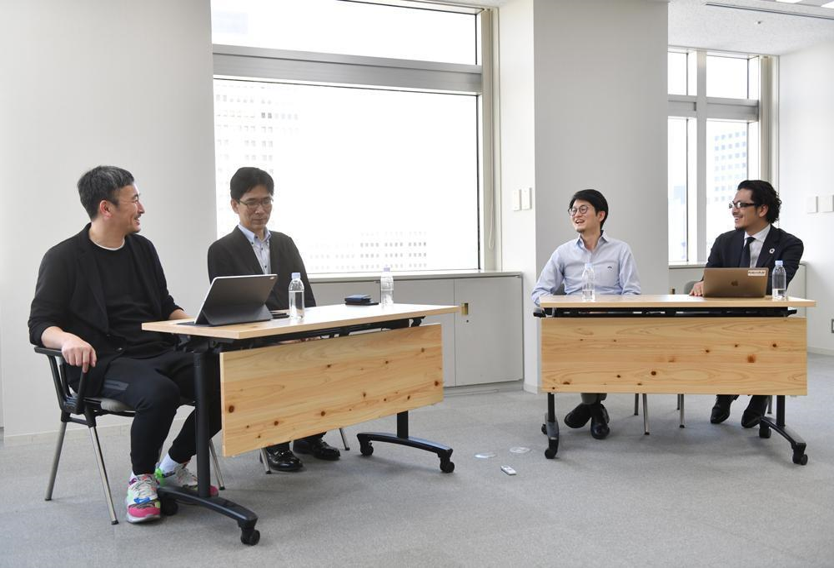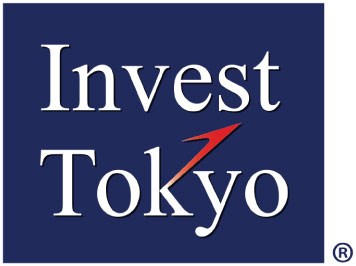Tokyo Innovation Ecosystem Special Discussion – Tokyo’s ecosystem. Creating and accelerating together –
What Do Startups Expect from Tokyo?
2020.5.29
The Tokyo Metropolitan Government is home to global companies, high-level human resources, and startups worldwide. To become a city that continues to produce innovations that solve social issues through a variety of collaborations, the TMG is working to revitalize innovation in the city, promote the growth and entrepreneurship of startup companies, and attract foreign companies with advanced technologies, based on the formation of an ecosystem*. In this unique feature, under the theme of “Tokyo’s ecosystem. Creating and accelerating together,” we interviewed a variety of players from the media, startups, and universities to discuss Tokyo’s ecosystem and the environment surrounding it.
- Special Interview: The Significance and Potential of Ecosystems
Mr. Michiaki Matsushima, Editor-in-Chief of WIRED Japan - Panel Discussion1: What do startups expect from “Tokyo”?
Panelists:
Tomohiro Tada, Chairman, and CEO, AI Medical Service Inc.
Yuichiro Ito, Director, and CFO, Finatext Holdings Inc.
Takayuki Sasaki, Executive Officer and CMO, TBM Inc.
Moderator:
Kazuhiko Chuman, General Manager, Business Incubation Promotion Department, Corporate Strategy Division, KDDI Corporation - Panel Discussion 2: How should “universities” collaborate with startups?
Panelists:
Yoshihiro Kawahara, Professor, Graduate School of Engineering, The University of Tokyo
Masaya Nakamura, Professor, Keio University School of Medicine
Toru Asahi, Professor, Faculty of Science and Engineering, Waseda University / Executive Director, WASEDA-EDGE
Human Resource Development Program
Moderator:
Ms. Moe Nasu, Managing Director, Public Service, Medical & Health, Accenture
*Ecosystem: A business environment in which various players from industry, academia, and government, such as venture companies, large corporations, investors, and research institutes, coexist or collaborate to create a virtuous cycle of coexistence, co-prosperity, fostering of advanced industries, and economic growth, analogous to a natural ecosystem.
What do startups expect from the Tokyo ecosystem? Three CXOs (chief operating officers of various divisions) from diverse startups such as AI development in the medical field, financial infrastructure construction, and development of new eco-friendly materials gathered to discuss the utilization of the ecosystem by startups and global expansion.
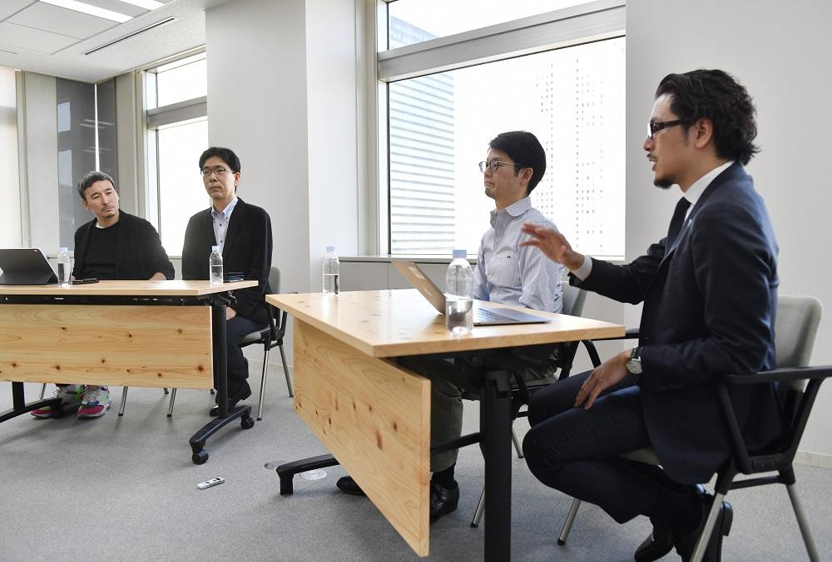
〇Panelists:
Tomohiro Tada, Chairman, and CEO, AI Medical Service Inc.
Yuichiro Ito, Director, and CFO, Finatext Holdings Inc.
Takayuki Sasaki, Executive Officer and CMO, TBM Inc.
〇Moderator:
Kazuhiko Chuman, General Manager, Business Incubation Promotion Department, Corporate Strategy Division,
KDDI Corporation
Chuman
Before we get into the main topic, could you introduce yourself and tell us about your involvement in the ecosystem? I am in charge of corporate venture capital (CVC) for venture businesses and the accelerator program ∞Labo at KDDI.
Tada
I’m Tada, CEO of AI Medical Service, a startup developing AI for endoscopes. Endoscopes are medical devices that originated in Japan, developed by Olympus about 70 years ago, and Japan still holds 98% of the global market share. We would like to challenge the world by developing AI in this field.
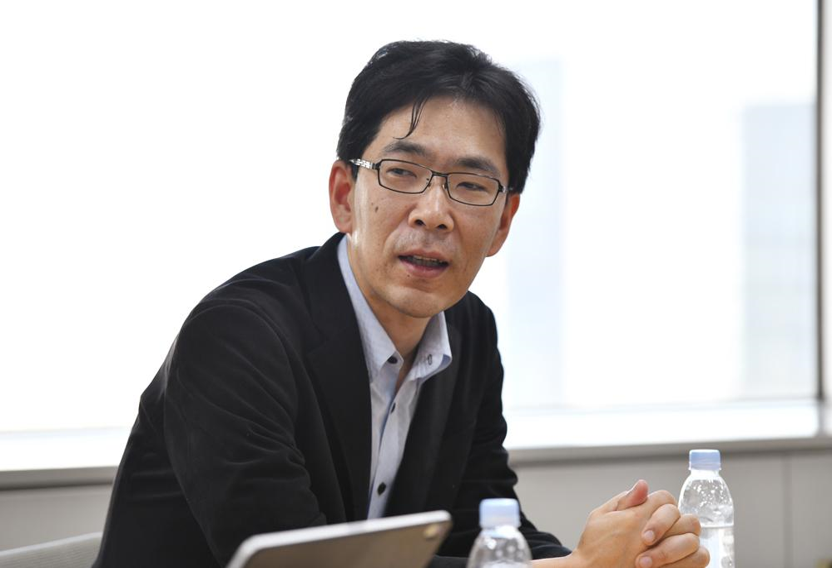
Ito
My name is Ito, CFO of Finatext Holdings. We provide cloud-based infrastructure commonly required for financial services such as securities and insurance and build customized financial services on a tailor-made basis for non-financial businesses such as retail.
Sasaki
I’m Sasaki, CMO of TBM. We are a startup company that develops, manufactures, and sells LIMEX, an alternative material to paper and plastic, mainly from limestone. We are currently expanding our business globally. At the end of last year, we were recognized as a unicorn company with a corporate value of over 100 billion yen.
Chuman
Thank you very much. Do you have any experience of participating in accelerator programs or receiving support through them?
Tada
I’m a doctor, and I had the knowledge and technology when I started as a venture business. Still, I lacked the financial and organizational skills to make it a business, so I joined the camp. The incubate fund that supported us provided money, came to the company about once a week and participated in the hiring interviews, which was very helpful and caring.
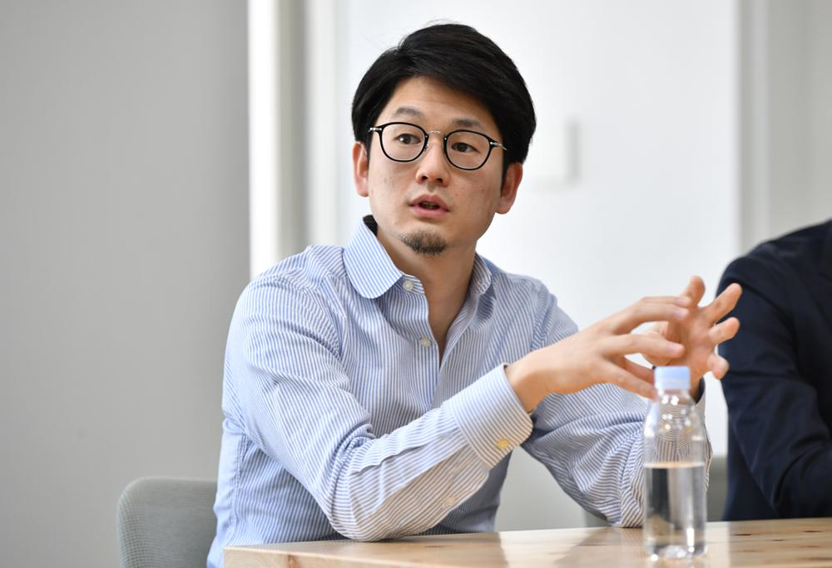
Ito
I realize the importance of the relationship with universities. We have strong ties with the University of Tokyo, as some of our members are graduates of the University of Tokyo. Some of our businesses were born from there. In the case of Mr. Tada, I think he has a technological advantage and is receiving support from VCs to create a business model. If a university has a source of competitiveness or technology that can lead to differentiation but is facing challenges in monetizing it, we can provide business know-how and, if necessary, turn it into a service that can be funded and sold. In other words, we take care of the part of how to create a competitive edge.
Sasaki
In terms of acceleration, we received support from Silicon Valley’s Plug and Play in 2016.
Chuman
Silicon Valley is a challenging environment for hardware and materials-related startups, isn’t it?
Sasaki
That’s right. However, Plug and Play believed that “sustainability will be required in manufacturing seriously in the future” amid the trend of ESG investment and focused on “what to make from what” rather than “what to make”. A new materials and packaging category was created in 2016, and our company won first place at the pitch event. Then we won the Social Impact Award and were matched with a partner to expand LIMEX materials globally and quickly.
Chuman
How do you think about the global expansion of your business?
Sasaki
Currently, our main business is in Japan, but since the second half of last year, we have been able to produce and process materials overseas using our existing facilities. Therefore, this year we will strengthen our activities overseas, including sales channels.
Ito
Our company is also working on global initiatives, and half of our employees are overseas. Our offshore development base is in Vietnam, and we are also developing business in the UK and Taiwan.
Chuman
Your business is mainly BtoB, isn’t it?
Ito
Overseas, our business is BtoC and BtoBtoC. In the beginning, we took our Japanese services and translated them into English, but we were surprised at how little response we got. However, we were able to build a relationship at that time, so we took advantage of finding a business where we could add value locally.
Tada
We are still in the R&D stage, but we have started negotiations for joint research. Also, in the medical field, papers are published in English, so we have published many world-first papers and have received several top awards at overseas conferences, but in terms of products, we have a long way to go overseas.
Chuman
Do you have any connections with endoscope manufacturers?
Tada
Of course, we negotiate with them, but we make products that can be used by any manufacturer, whether it is Olympus or Fujifilm.
Chuman
Tokyo is a globally oriented city, and if Tokyo doesn’t do its best in Japan, which region will? But unfortunately, just because you can win in Tokyo doesn’t mean you can win in the world. Is there anything that can be done to make Tokyo a part of the global startup ecosystem?
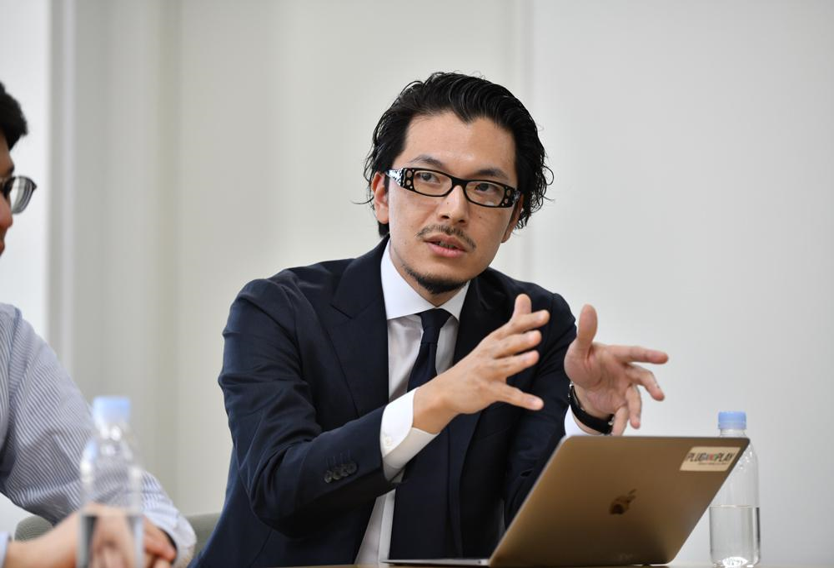
Sasaki
As an extension of our company’s business, I think the SDGs’ spirit at the UN Summit suits Tokyo very well. Japanese people are compassionate, and I think the SDGs have a nature of “contribution” and “action” that only people with a high quality of life can provide. It is said that the circular economy will generate an economic effect of 4.5 trillion yen by 2030. I believe that Japan has the potential to build a new model of resource recycling based on the compassionate spirit of the people living in Japan and to expand this model from Tokyo to overseas.
Chuman
In Japan, there is still a deep-rooted awareness that ecology and the SDGs are not profitable, so I think we need some kind of catalyst to change that.
Sasaki
The consumer image associated with ecology is indeed changing these days, and many people think of it as “small business” or “unapproachable”. However, at our company, we consider whether it is possible to combine economy and ecology as the first judgment in material development. For example, even though limestone is a very inexpensive and abundant resource, the amount of water, forest resources, and petroleum resources used in the production of paper and plastics increases as the global population grows and the quality of life increases. Instead of relying on resources with a high risk of depletion, we would like to utilize resources with large reserves and enable recycling to circulate materials.
Ito
I think people are now reevaluating the safety of Tokyo. In the case of our company, we have seen a considerable increase in the number of people from Hong Kong and Taiwan joining our company since last year. I have the impression that there are many applications, especially from women. I think this is probably due to the need to live in a safe and clean air environment. However, they may be anxious about going extremely far away from their families. That is why Tokyo is a candidate.
Chuman
Tokyo has a certain level of economic development in Asia and is beginning to be recognized for its cleanliness and safety.
Ito
I feel that this is the right time to emphasize the added value of Tokyo in Asia. Therefore, I think it is important to appeal this point to the world.
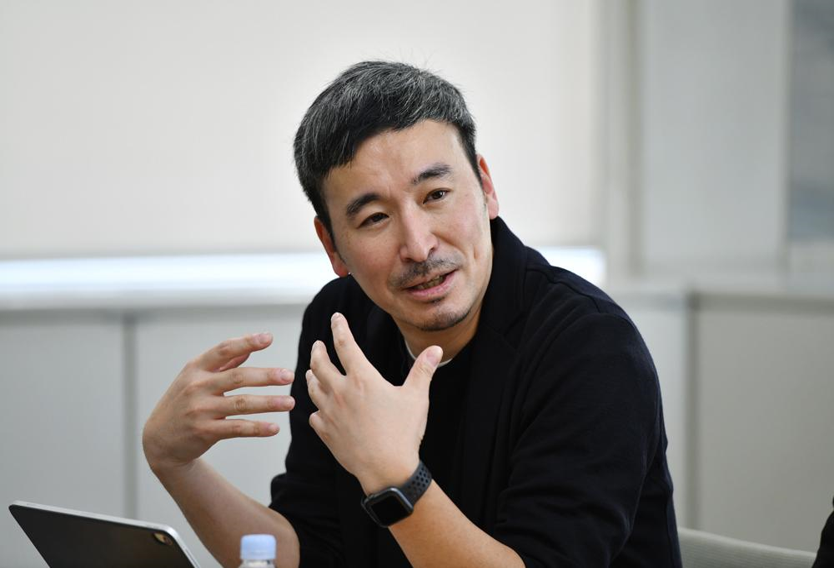
Chuman
Nowadays, people say that international students don’t come to Japan because it is unattractive, but a certain level of knowledge recognizes the value of Tokyo.
Tada
It may sound paradoxical, but the first thing a VC told me was, “Why don’t you aim for the global market?” I think it would be great if the Tokyo Metropolitan Government would also give such encouragement to venture businesses.
Chuman
It’s true that when you look at Korea, they don’t think of doing business only within Korea from the beginning. Basically, Korean companies have either Japan and the US or China and Southeast Asia as their primary markets. Basically, Korean businesses have either Japan and the US or China and Southeast Asia as their primary markets. Their businesses are at least multilingual, and they design their services based on the premise of multiculturalism. In particular, I think that the AI business is easier to develop overseas.
Chuman
That’s right. In the big data analysis business, most of our customers are overseas. Half of our engineers are also non-Japanese.
Chuman
Japan is also making progress in deregulation, but I think it is better to be prepared to go overseas if things don’t go well in Japan. In that sense, I would like the Tokyo Metropolitan Government to support startups that aim to go global.
Ito
In the case of our company, we set up an office in the UK when we still had about 9 employees. We felt that if we didn’t go overseas before we established our business in Japan, we would not be able to go abroad for a long time to come. However, it was challenging for us to go overseas, so it would be nice to have support for that.
Chuman
Finally, what are your expectations for the Tokyo Metropolitan Government?
Sasaki
To create a paradigm shift that changes common sense, deregulation is necessary, and there should be a social cost of accepting risk. I would like Tokyo to become a model city that supports the challenges of such startups.
Ito
I think many companies provide financial support. However, when I think about what is lacking for startups, I feel that it is the location. It’s hard to find a place to hold an event for a startup company. There have been times when we have given up on the event itself. It would be great to have a place that we can use freely.
Tada
In our case, it would be helpful to have a location or special ward to conduct demonstration experiments.
Sasaki
When I went to Silicon Valley, I felt an atmosphere of support for startups from the entire city. I think that’s why companies like Tesla were born. I think it’s essential that the goals of the city and the goals of the startups are aligned. Therefore, if there is a clear vision of “this is what Tokyo is all about” and startups participate in a way that is integrated with that vision, that mix will become a robust ecosystem in the true sense of the word.
Chuman
The Tokyo Metropolitan Government also needs to have a clear vision and message. I look forward to seeing how well we can create a startup-friendly structure in the future. Thank you very much for your time today.
